Are you looking for research materials? Websites like Google Scholar focus on delivering in-depth, credible, and scholarly resources to support researchers like you.
So, if you are a researcher who is looking for a site that provides in-depth and valuable information, you’ve come to the right place.
In this post, we’ve curated a list of 15 Google Scholar alternatives, each of which caters to a specific audience and purpose.
1. ResearchGate

ResearchGate is a popular platform for scientists and researchers that specifically focuses on the academic and research world.
Each user can have a profile where you can upload research output, including data, negative results, papers, chapters, patents, methods, research proposals, presentations, and software source code.
Key Highlights
- You can find and share scientific papers, articles, and other research outputs.
- Connect with over 25 million researchers, find collaborators, and build your professional network.
- Ability to post your questions and get expert answers from other researchers.
- You can track and monitor how your research is being received by others.
- Available in multiple languages, making it accessible to researchers across the world.
2. CORE
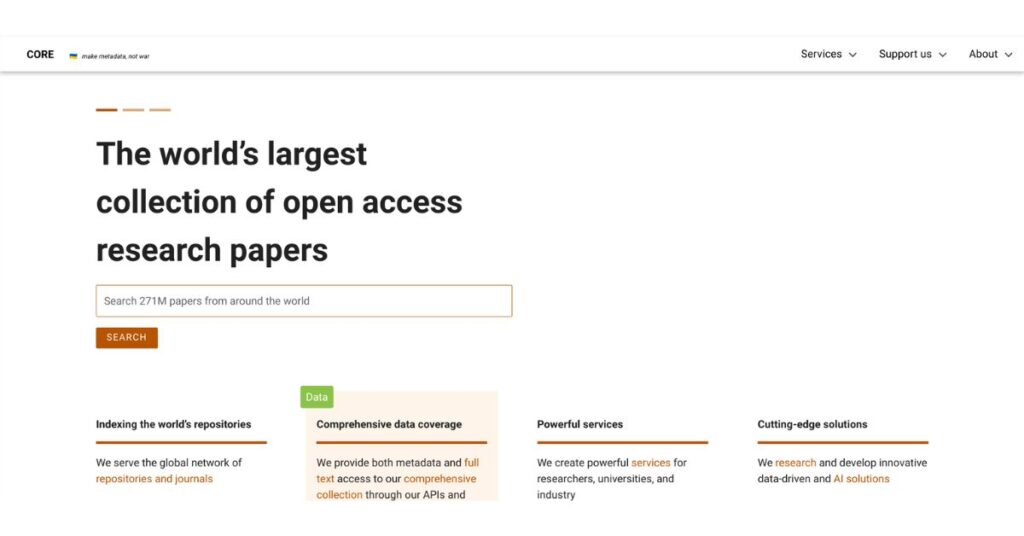
CORE – Connecting Repo stories is a popular free service that indexes millions of open-access research papers from various journals and repositories.
It can be a great choice with a vast collection of open-access literature and powerful search tools.
Key Highlights
- Exclusively focuses on open-access literature.
- Aggregates literature from over 135 million open-access repositories across the world.
- Offers unique features like Explore and Discover for visualizing research trends and recommending related articles based on your search history.
- It lets you refine your search by publication date, author, subject area, and other criteria.
3. ScienceDirect
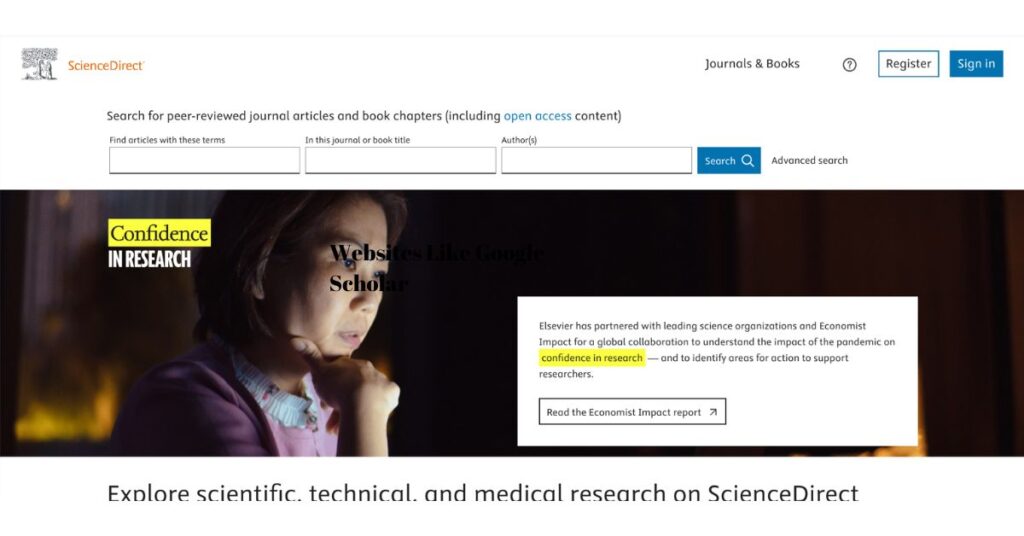
A large academic publisher – ScienceDirect is the world's leading source for scientific, technical, and medical research.
It provides access to a vast database of scientific and medical publications, making it a great resource for researchers like you in many fields.
Key Highlights
- Over 18 million full-text articles and book chapters comprising over 30,000 e-books and 4000 journals across 24 major disciplines.
- Journals are peer-reviewed, meaning that they are reviewed by experts in the field before they are published.
- Caters to researchers and students in diverse fields.
- Explore journals and content categorized by subject areas for easier navigation.
- Facet filters like topic, citation metrics, author, and publication date for precise results.
4. BASE
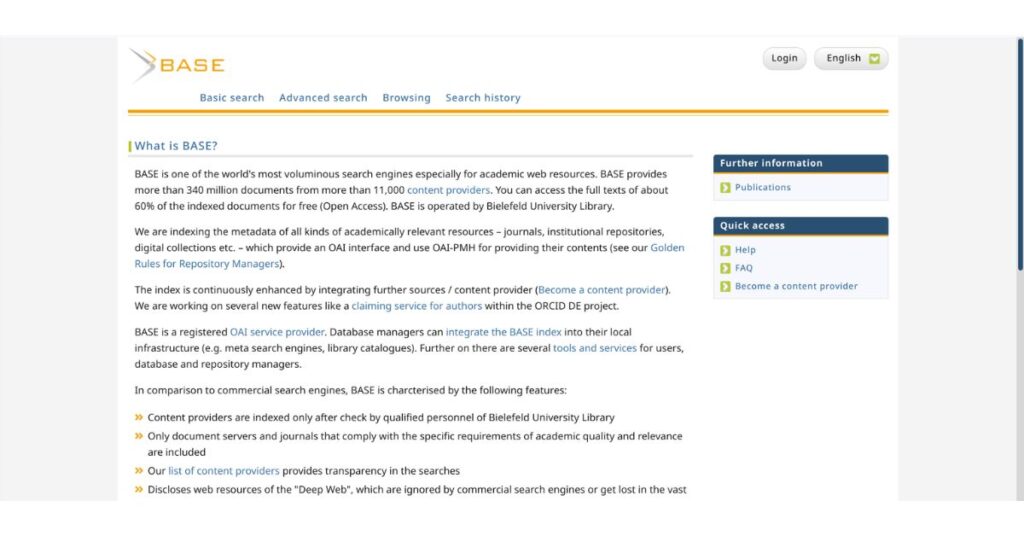
Bielefeld Academic Search Engine – BASE, is a multi-disciplinary search engine for scholarly internet resources.
It prioritizes indexing open-access publications, making it a valuable resource for those seeking freely available research.
Key Highlights
- Currently indexes over 80 million documents, including book chapters, articles, and conference proceedings.
- It searches across content in over 200 languages, expanding your research reach beyond English-language publications.
- Explore collections of documents organized by discipline.
- Discover articles that cite a specific work, helping you track the impact and dissemination of research.
- Refine your search results using filters like access type, funding source, document type, and publication language.
5. Science.gov
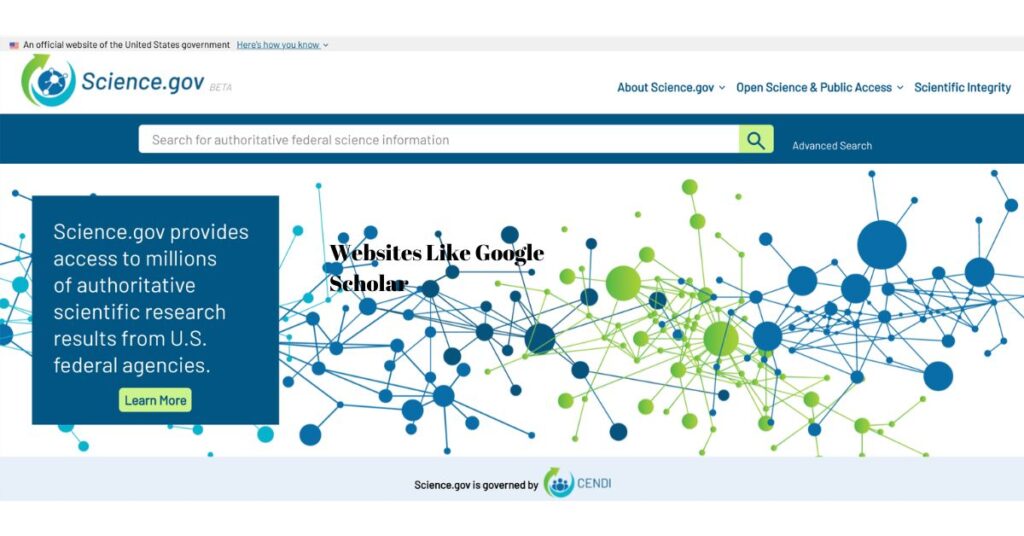
One of the popular websites like Google Scholar – Science.gov, is a web portal and specialized search engine provided by U.S. Government science agencies.
You can browse by topic, agency, or collection, create personalized profiles, save searches and lists, and even receive email alerts for new content.
Key Highlights
- Advanced filters like topics, file types, specific agencies, publication dates, and several other criteria.
- Access headlines and summaries of recent scientific discoveries from government agencies.
- Based on your search, you can discover similar publications and resources, thus expanding your research scope and learning opportunities.
- You can analyze results by subtopics or dates.
6. Semantic Scholar
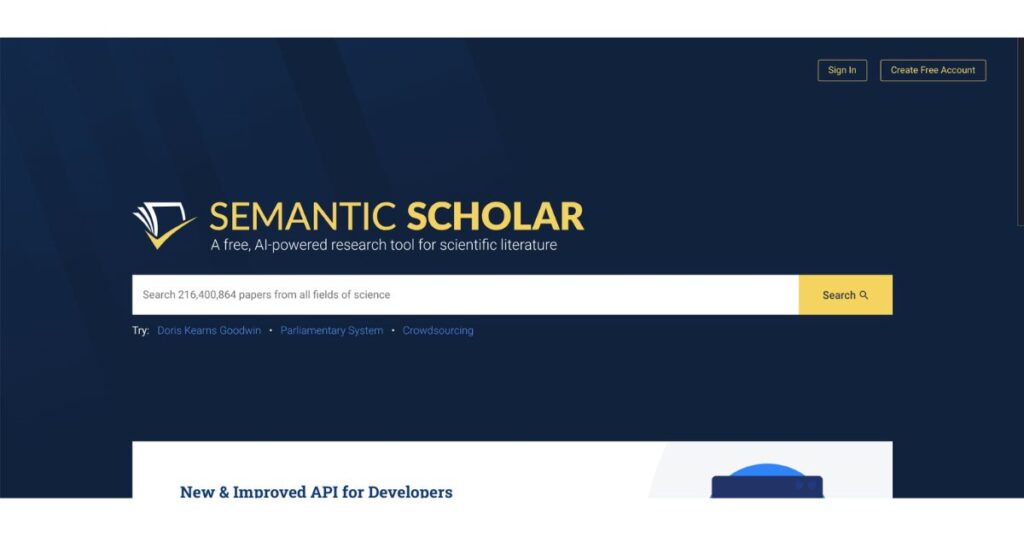
Revolutionizing scholarly search and exploration, Semantic Scholar is a research tool that uses artificial intelligence to enhance traditional search methods for scientific literature.
One of its main aims is to address the challenge of reading numerous titles and long abstracts on mobile devices.
Key Highlights
- Automatically generates concise summaries of research papers.
- It analyzes the context of citations, providing insights into the impact and influence of a paper.
- Recommends relevant papers, leading you to connected research and expanding your exploration.
- Identifies prominent topics and extracts figures and tables within papers and across research areas.
7. Microsoft Academic
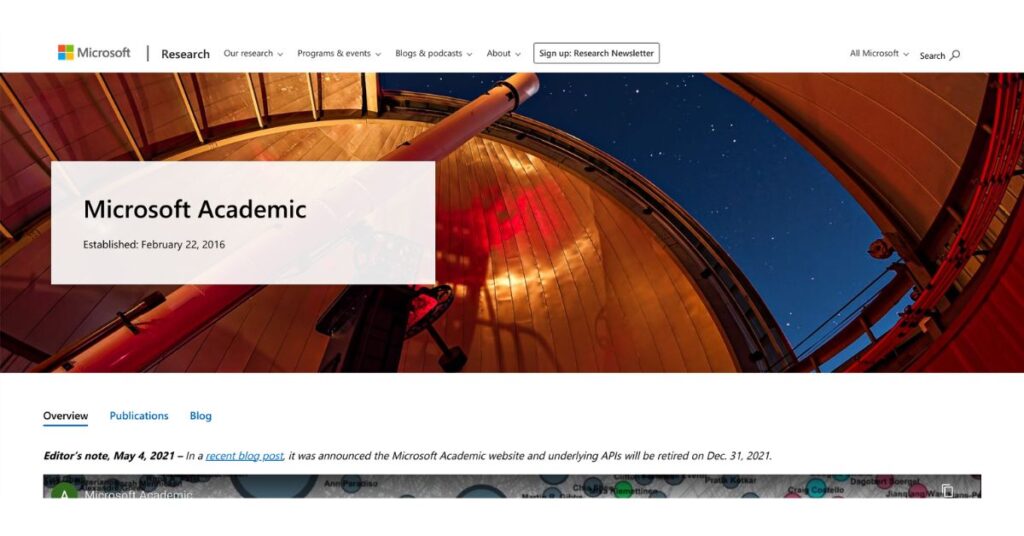
Another great Google Scholar alternative – Microsoft Academic is a comprehensive search engine and knowledge base for scholarly publications.
Though it was the second largest academic search engine after Google Scholar, it was shut down in 2022 and the content was allegedly incorporated into The Lens.
Key Highlights
- Microsoft Academic Graph represents relationships between entities like institutions, topics, authors, and papers.
- Ability to track search output and collaborations of individual researchers and institutions.
- Covers several disciplines, including conference proceedings, scientific articles, book chapters, and technical reports.
- It prioritizes indexing open-access publications, promoting wider research dissemination.
8. JSTOR
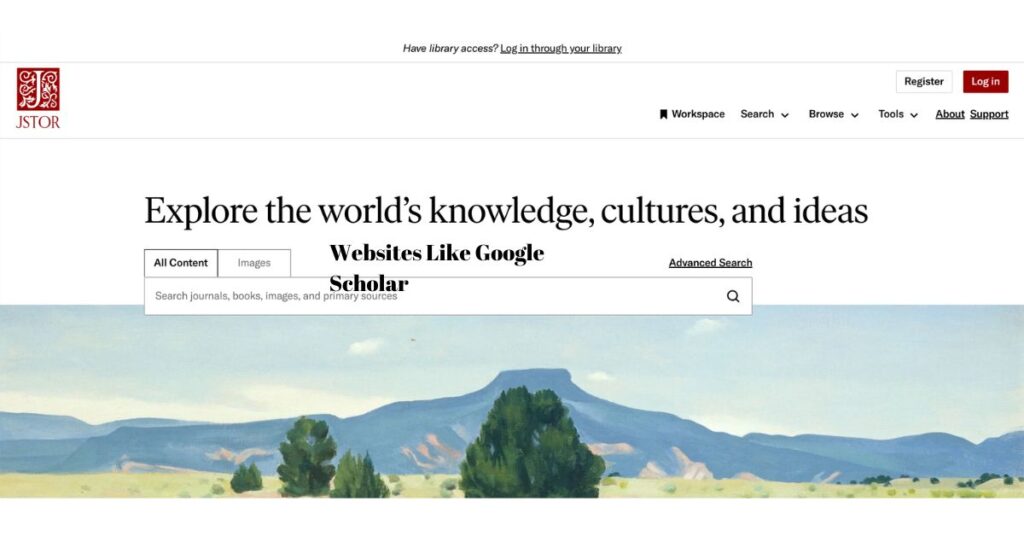
JSTOR is a well-respected and established digital library platform that provides access to millions of journal articles, books, and other materials across various disciplines.
It primarily focuses on archiving and preserving historical scholarly publications, making them readily available to researchers and students worldwide.
Key Highlights
- Over 20 million articles from thousands of journals, spanning different disciplines like social sciences, humanities, and science.
- Powerful search tools and curated browsing by subject area help you find relevant resources.
- You can either read full-text articles online or download PDFs for offline reading.
- Discover new materials based on your search or by following links within articles.
9. Wolfram Alpha
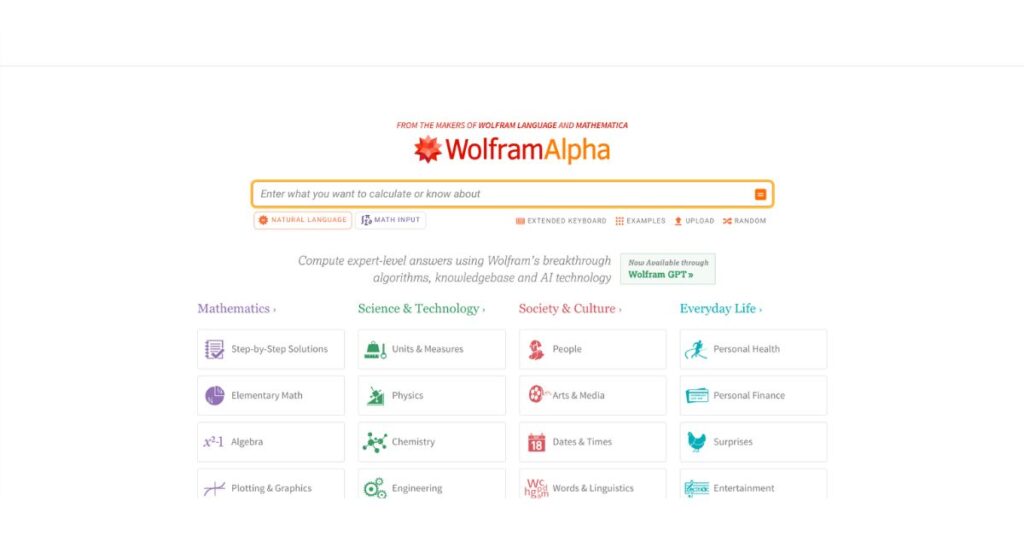
Wolfram Alpha is another Google Scholar alternative which is an answer engine that answers factual queries by computing answers from externally sourced data.
You can submit queries and computation requests through a text field. It then computes answers and relevant visualizations from a knowledge base that comes from other sites and books.
Key Highlights
- Generates visualizations and graphs to illustrate the results.
- Provides data and statistics on diverse topics.
- Computes answers to factual questions across various domains like math, history, science, engineering, finance, and more. ‘
- Provides step-by-step solutions for certain problems.
10. RefSeek
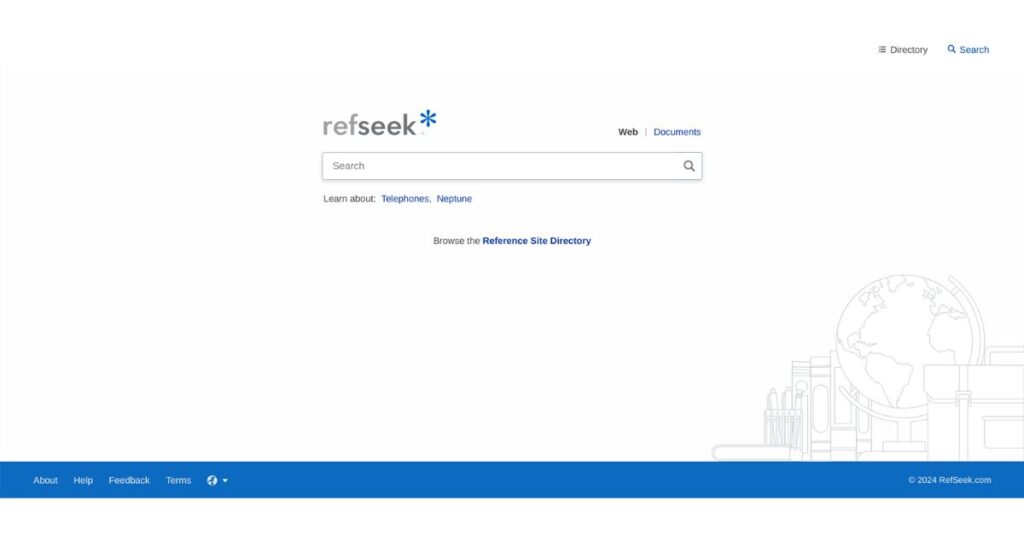
RefSeek is an academic search engine that is specifically designed for students and researchers, aiming to make academic information easily accessible.
It prioritizes indexing credible academic resources like journals, scholarly articles, books, and websites with educational value.
Key Highlights
- Covers a wide range of academic disciplines, from science to humanities.
- Comprises billions of documents, including databases, web pages, and institutional repositories.
- Ability to search by title, publication date, keyword, author, subject area, and other criteria.
- Access citation information for articles, helping you gauge their impact and influence within the academic field.
- Read full-text articles directly on the site, eliminating the need to switch between sites.
11. PubMed
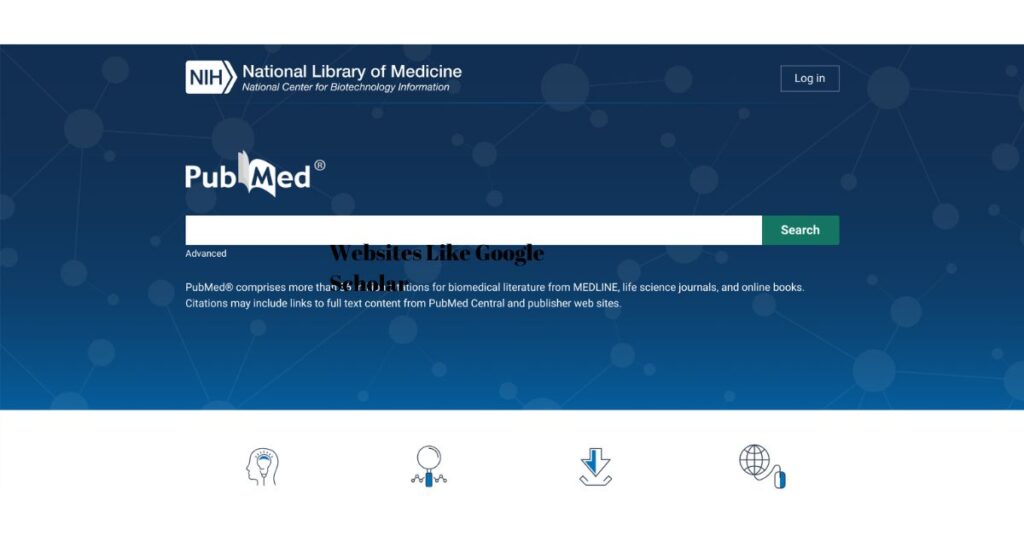
A veritable treasure trove for scholars and researchers – PubMed is mainly for those in the biomedical field. It is an amazing resource for anyone delving into the vast world of research.
Furthermore, it primarily indexes MEDLINE, a comprehensive database of citations and abstracts for books, journal articles, and other resources on biomedical topics.
Key Highlights
- Ability to search by author, MeSH terms, keyword, publication date, and several other criteria.
- Millions of articles are directly linked to full-text PDFs, available through your library or paid subscription.
- You can access summaries of research articles to quickly assess their relevance to your interests.
- Discover similar articles depending on your search.
12. AMiner
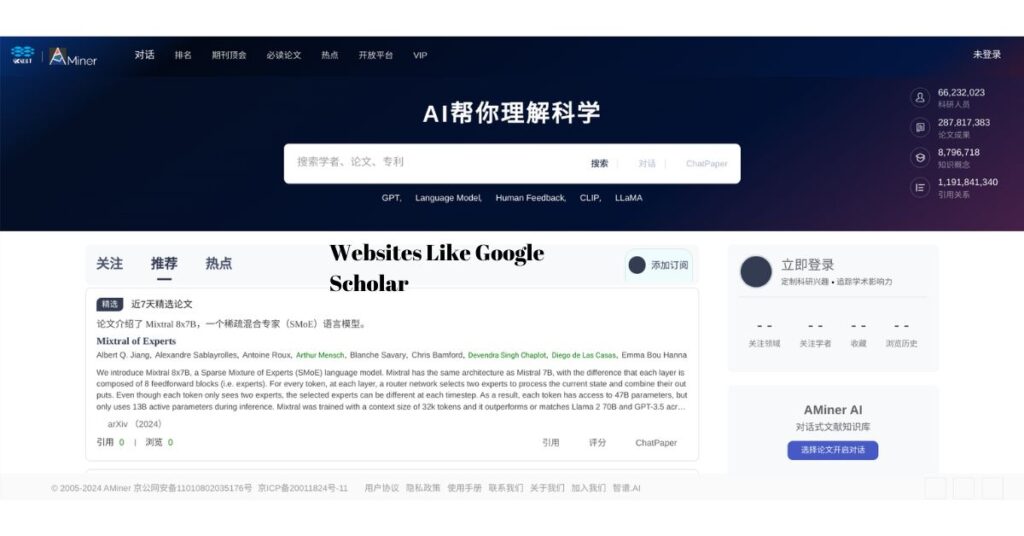
AMiner is a large-scale academic research information retrieval and social network analysis system that provides access to a wide range of academic resources.
It offers a variety of tools and services for researchers, including social network analysis, citation analysis, and expert findings.
Key Highlights
- Provides citation analysis tools to let you track the impact and influence of research.
- It indexes over 100 million scholarly articles, patents, conference proceedings, and funding information.
- Expert finding tools that let you identify researchers with expertise in a particular area.
- Discover leading researchers in your field based on citations, publication outputs, and collaboration networks.
13. WorldCat
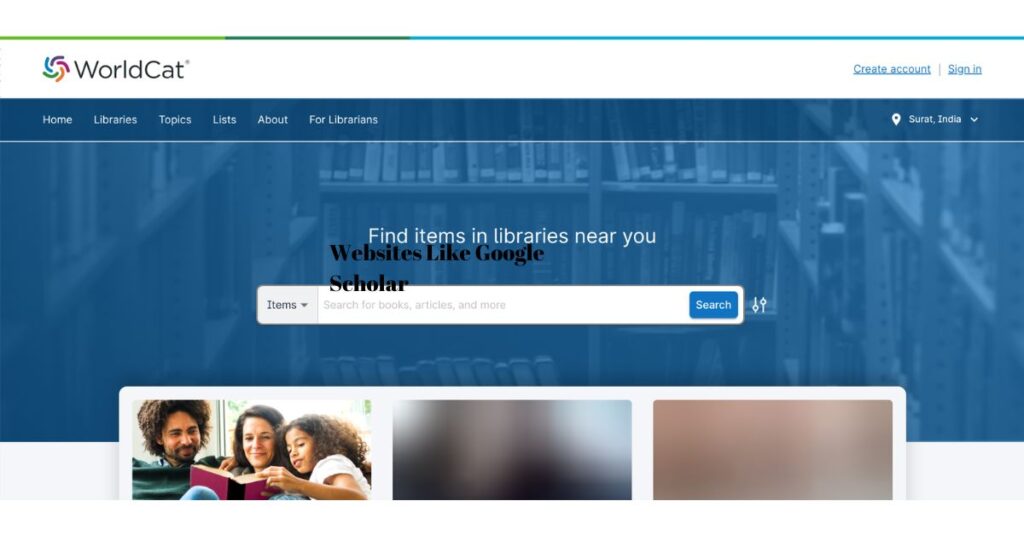
WorldCat is a treasure trove for researchers, offering access to a staggering collection of library materials from around the world.
It comprises over 5 billion bibliographic records from thousands of libraries worldwide and essentially lets you discover articles, books, theses, journals, archival materials, and more.
Key Highlights
- You can find any resource you need, from bestselling novels to research articles, with access to diverse languages and formats.
- Access accurate and detailed citation information for your research papers.
- You can request materials that are not available in your local library.
- Create accounts to build and manage lists of resources, set up alerts for new additions, and track your research progress.
14. Baidu
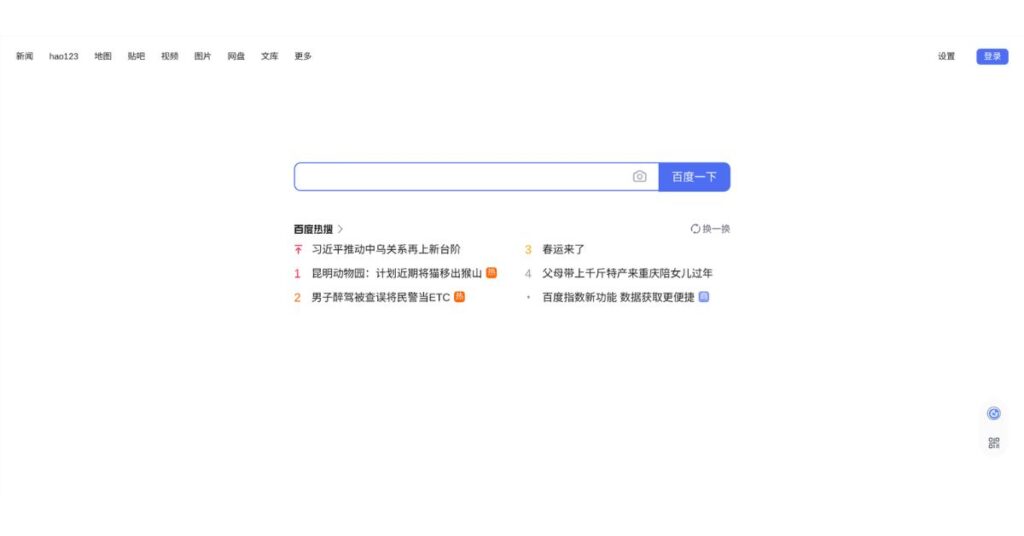
Baidu is a multinational technology company that offers several features and resources within its main search engine and research-related initiatives.
But, it doesn’t have a separate or dedicated search engine only for research like Google Scholar. Nonetheless, its main search engine offers tools that cater to academic exploration.
Key Highlights
- It comprises journals, scholarly articles, conference proceedings, and other academic resources.
- Ability to refine your search using filters like subject area, publication language, publication date, author, and access type.
- Its search displays citation information for articles, helping you gauge their academic impact and influence.
- Discover similar publications based on your search.
15. arXiv
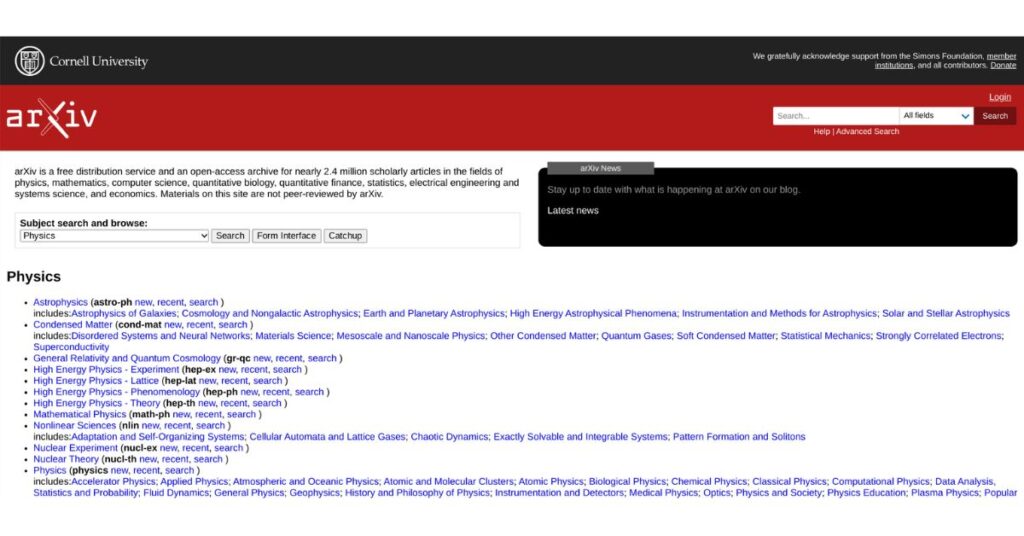
Lastly, we have arXiv on our list of websites like Google Scholar. It is a free, open-access archive for scholarly articles in various fields, including mathematics, physics, and computer science.
It is a fascinating platform brimming with preprints and post-prints, offering researchers a window into cutting-edge discoveries.
Key Highlights
- Access and download millions of research articles without paywalls or restrictions.
- Upload your latest findings almost instantly and share results with the global scientific community.
- Explore trending topics, browse curated lists, and discover related research.

